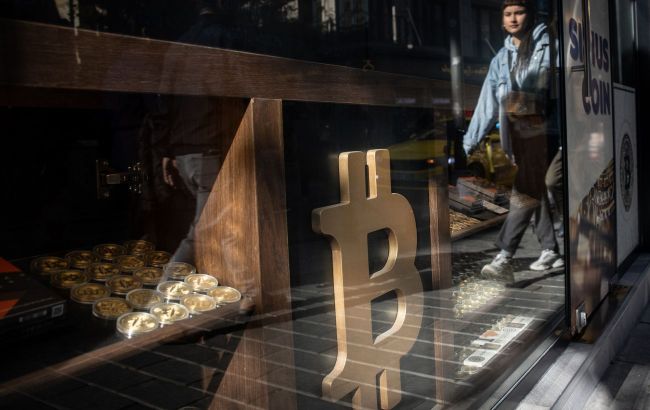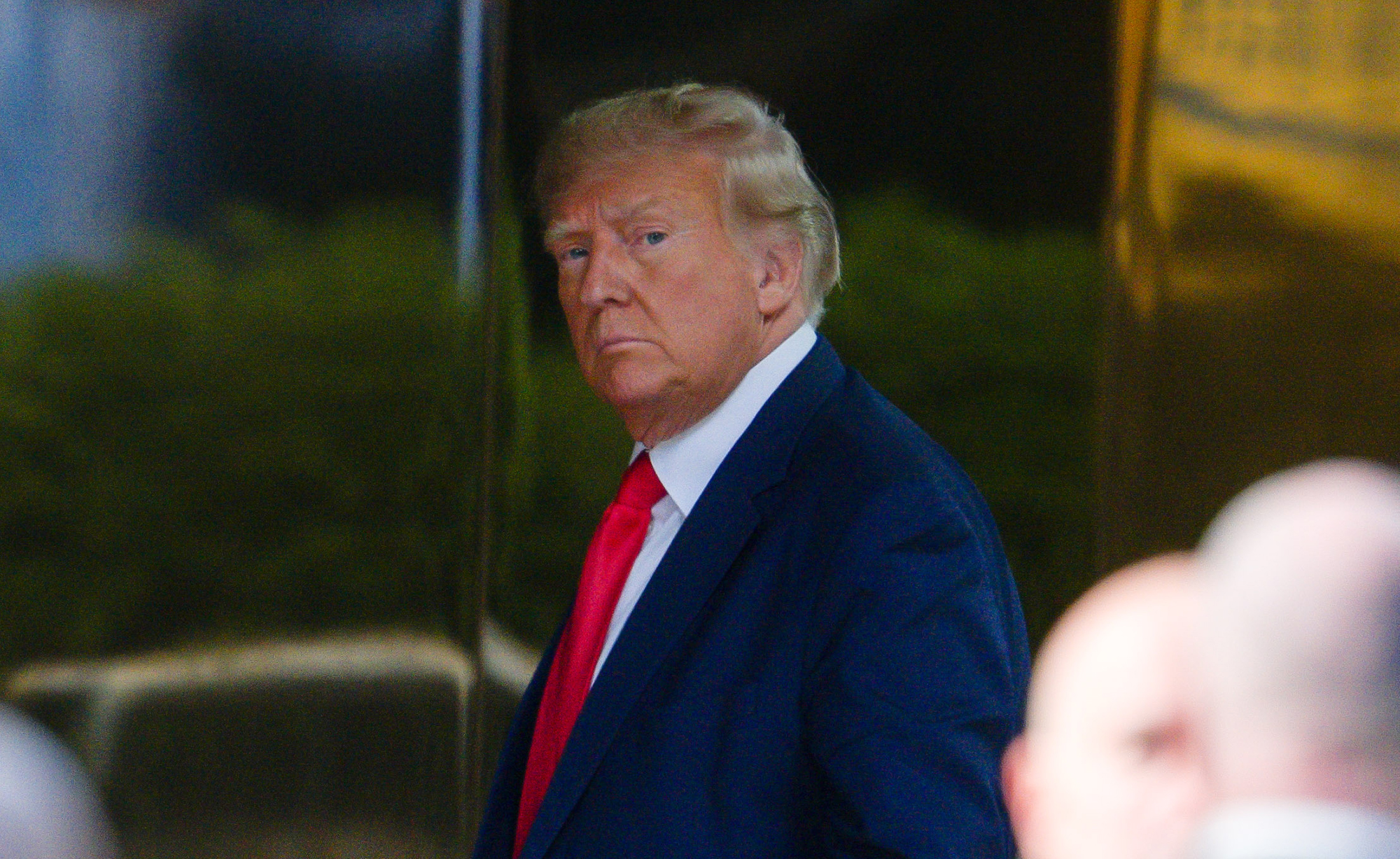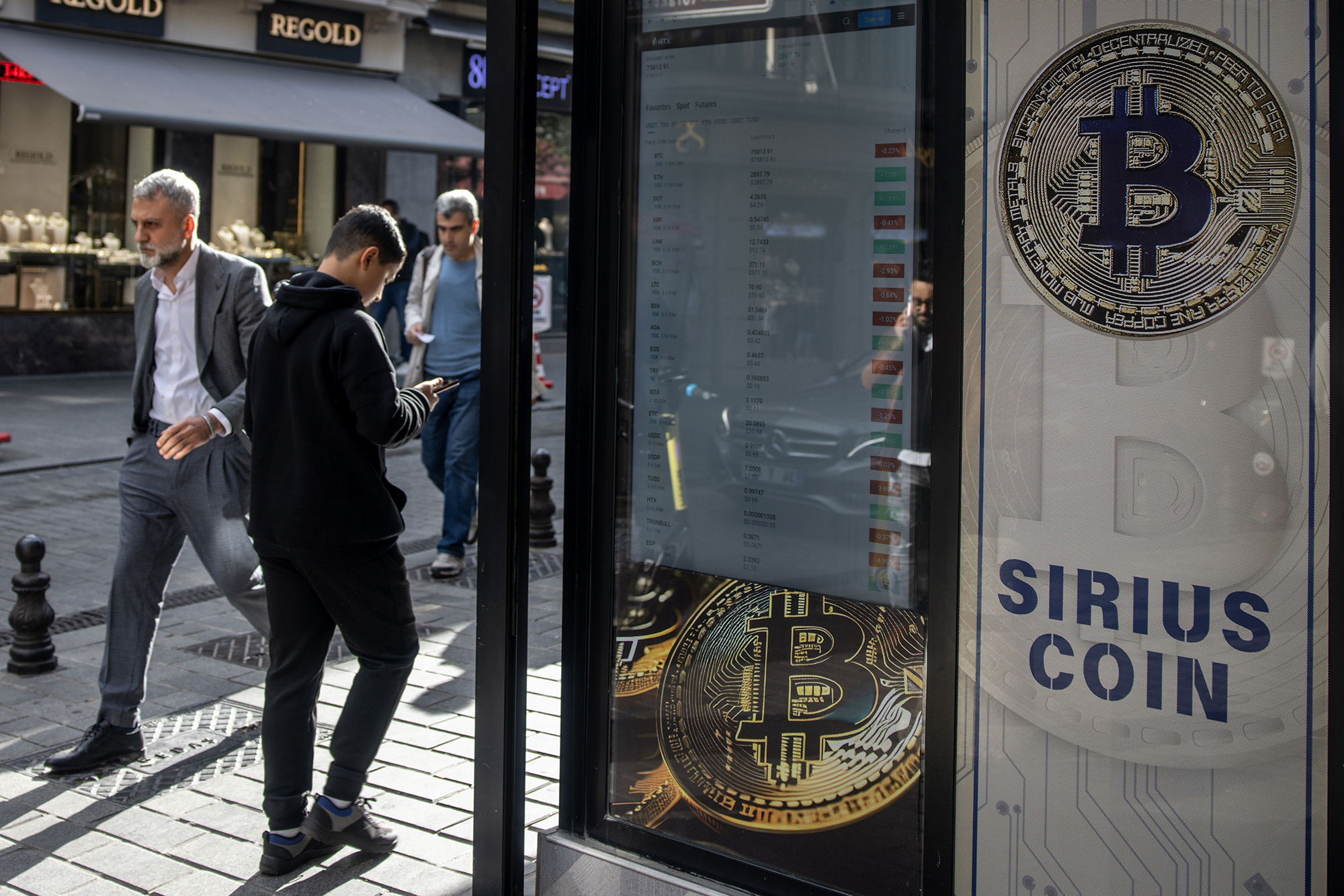Crypto boom: Why bitcoin is skyrocketing and how Trump is involved
 Illustrative photo (Getty Images)
Illustrative photo (Getty Images)
In November 2024, Bitcoin, the world’s first and most popular cryptocurrency, surged to an all-time high, exceeding $90,000. Currently, a single Bitcoin costs more than a kilogram of gold. Many attribute this shift in the cryptocurrency market to the victory of the 47th President of the United States, Donald Trump, who previously stated his intention to make the US a global leader in the crypto industry.
More on why Bitcoin is rising so rapidly, how long this trend will last, and under what conditions this situation could become a downfall for cryptocurrency in an analysis by RBC-Ukraine below.
The Trump factor
Experts agree that the primary trigger for Bitcoin’s rise from $68,000 on November 5 to over $90,000 on November 13 was the outcome of the US election, with Donald Trump emerging as the winner. In his campaign statements, Trump emphasized his plan to make the U.S. number one globally in the field of cryptocurrencies. To achieve this, he aims to keep part of the country’s banking reserves in Bitcoin and intends to deregulate the cryptocurrency market.
This sparked a surge in demand for high-risk assets: cryptocurrencies, shares of American companies, banks, and even Ukrainian Eurobonds, says Artem Shcherbyna, Capital Times’ investment director.
“The market views Trump’s presidency as highly favorable for the crypto industry. At the very least, Trump has already announced that he’s ready to replace the Treasury Department with younger managers. Additionally, Elon Musk, a major proponent of a digital dollar and digital currencies, will join Trump’s administration,” Shcherbyna says.
Trump also promises to remove SEC Chair Gary Gensler, who has pushed for strict regulation of the crypto industry. According to Dragon Capital’s Deputy Director for Securities Trading, Serhiy Fursa, this poses a threat to the civilized world, as he believes that cryptocurrency markets facilitate drug trafficking, arms sales, and Russia’s sanctions evasion due to transaction anonymity.

Crypto industry supports Donald Trump (photo: Getty Images)
Financial analyst Andrii Shevchyshyn, however, disagrees. He notes that transactions are currently regulated through data personalization for every cryptocurrency holder. Furthermore, exchange points, where individuals cash out funds, are monitored. He adds that almost 99% of wallets can be identified. Therefore, Shevchyshyn sees no issue with crypto market deregulation.
Speculative growth or harbinger of change?
Both experts agree that following Trump’s victory, cryptocurrency growth is largely speculative. Fursa argues that while the uptrend could last, a shift in investor sentiment could reverse the situation, even suggesting Bitcoin could crash to critically low levels soon.
Conversely, Shevchyshyn believes that despite the Bitcoin spike being driven by investors’ high expectations of Trump’s plans, it will have a long-term impact, bolstering Bitcoin’s position.
“Why speculative? Because it’s all just based on expectations. I think Trump will move from campaign promises to real action, as there’s information that he personally has investments in Bitcoin, which would benefit him. Moreover, Trump encouraged the crypto market audience to vote for him, and disappointing them would be a bad signal. Thus, this capital is moving from speculation into investments from retail and other sectors investing in relevant funds, where capital inflow is currently explosive,” Shevchyshyn explains.
Other reasons behind the rise
While Trump’s presidency is the most visible catalyst for Bitcoin’s price surge, it isn’t the only one. The January authorization from the US Securities and Exchange Commission (SEC) to launch exchange-traded funds (ETFs) investing directly in Bitcoin has played an important role. ETFs allow people to invest in cryptocurrency without having to buy it directly.
“ETFs are experiencing a massive influx of capital, and as a result, Bitcoins are being bought with real fiat money. When funds enter the ETF, they must invest everything declared in the fund’s prospectus in cryptocurrency. The prospectus requires purchasing Bitcoin, leaving a small portion of capital in cash to pay out to investors if they exit. This brings a large amount of dollars into the crypto market, converting them to cryptocurrency and driving Bitcoin to new highs,” Shevchyshyn says.
The expert believes that Bitcoin’s 2.5-fold growth since the start of the year is not the limit. He predicts that by the end of the month, the cryptocurrency could surpass $100,000, with a potential peak of $110,000–$115,000. This could be a good point for profit-taking, as a price correction may follow.
Additionally, the end of the year is traditionally a period of significant growth for the main digital currency. Shcherbyna explains that for the third consecutive year, April and October have been weaker months for Bitcoin, which is gaining momentum toward winter.
What lies ahead for bitcoin
On Thursday, November 14, Bitcoin ranked as the world’s seventh-largest asset, overtaking the oil giant Saudi Aramco. Currently, its market cap is valued at $1.81 trillion, exceeding Spain’s GDP. Shevchyshyn is confident that this figure will continue to rise, as Bitcoin’s meteoric growth has led many investors to hold it in their portfolios, creating a certain scarcity in the market.

Bitcoin’s rapid growth (photo: Getty Images)
“When the market stabilizes, large nations may start buying Bitcoin. For example, El Salvador now buys one Bitcoin per day, while the US might want to purchase 100 Bitcoins daily. If such a player enters the market, a price of $500,000 could become a reality,” the expert adds.
Shevchyshyn suggests that Bitcoin is undergoing a societal acceptance phase, similar to the historical shift from gold coins to paper money. This process could accelerate as the crypto market continues to expand.
The expert does not believe in Bitcoin’s collapse, as the cryptocurrency has reached a level where major nations are ready to transact with it. For Bitcoin to lose its value, widespread trust would need to vanish, leading people to withdraw their funds, as its value relies on the general consensus of its holders.
At the same time, Shevchyshyn notes that Bitcoin has several drawbacks compared to more innovative cryptocurrencies. For instance, Bitcoin has a high transaction fee, sometimes reaching $20–$50, with transactions occasionally taking an hour to complete. In contrast, cryptocurrencies operating on smart contract platforms allow instant transactions, with fees as low as $0.01. Nonetheless, Bitcoin remains the number one cryptocurrency due to its recognition and phenomenal capitalization.

